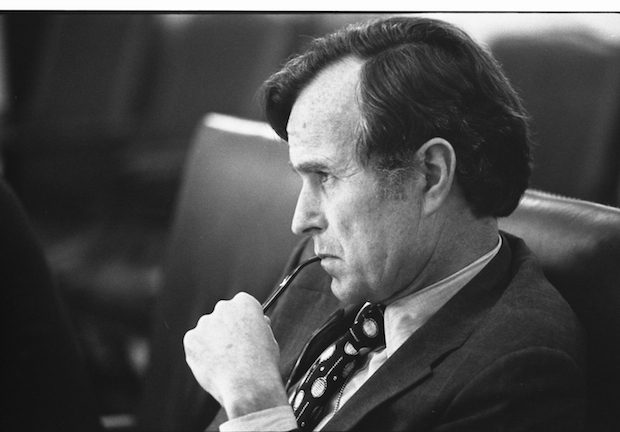George H.W. Bush, R.I.P.

Former President George H.W. Bush has died at the age of 94. His tenure as president coincided with some of the most significant events of the last thirty years, and he distinguished himself as arguably the most successful foreign policy president since the end of WWII. His foreign policy record was still a mixed one with misguided interventions in Panama and Somalia and military action against Iraq that began our country’s long and unhappy direct involvement in Middle Eastern wars. At the same time, on some of the most important questions relating to the collapse of communism in Europe, the dissolution of the USSR, the reunification of Germany, the U.S.-China relationship, and the reduction of the U.S. and Soviet nuclear arsenals, he demonstrated sober and sound judgment. Among his more significant achievements, Bush concluded the negotiations for the Strategic Arms Reduction Treaty (START) that served as the foundation for all subsequent arms control negotiations and agreements. His successes abroad did him little good at home, where he was rejected in his re-election bid. Bush’s presidency marked the end of an era in several respects. He was the last real moderate Republican to be nominated for president, he was the last WWII veteran to be elected president, and the Cold War ended on his watch.
Bush got many of the big foreign policy questions right during his presidency, but he also made some important mistakes. Bush’s wars in Panama and Iraq were wars of choice. The latter marked the start of decades of direct military involvement in regional conflicts that had nothing to do with U.S. security. The Gulf War was relatively brief, and the elder Bush has been rightly credited for not continuing the war and seeking regime change as his son later did, but the war itself still did serious harm to the civilian population. Bush’s reckless call for Iraqis to rise up against their government gave Iraqi Kurds and Shiites the false impression that they could expect U.S. support, but no support was ever coming to them and they were slaughtered. The establishment of illegal “no-fly” zones in northern and southern Iraq ensured that the U.S. would be stuck policing Iraq for years to come.
In contrast to those mistakes, the elder Bush handled the collapse of America’s Soviet rival very carefully, for which he was faulted at the time (think “Chicken Kiev”), and he deserves great credit for presiding over and helping to ensure the peaceful end of an extremely dangerous period in world history. The elder Bush was a realist and mostly governed like one, but he was not a proponent of restraint as it is meant today. Antiwar conservatives and non-interventionists didn’t agree with Mr. Bush’s “new world order” then and we still don’t. Nonetheless, on the whole he was a competent statesman who now seems that much more impressive because of the numerous failures of his successors.
Comments